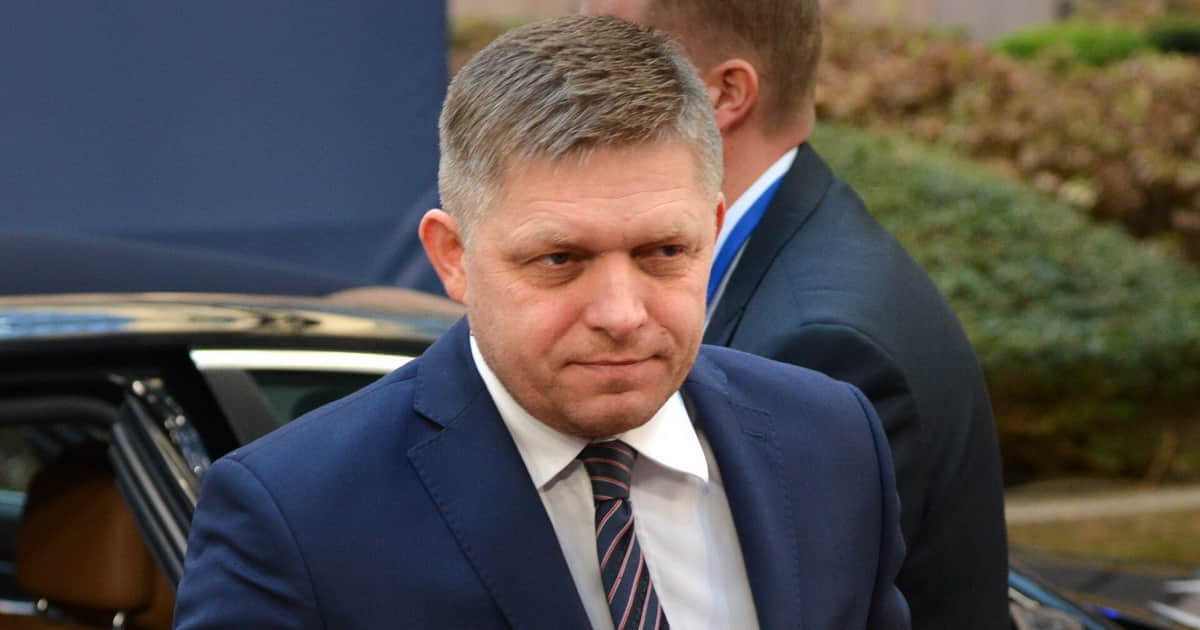What risks has victory of pro-peace supporters with Russia in Slovakia brought to Ukraine?

The Smer-SD party, led by former Prime Minister Robert Fico, has won the parliament election in Slovakia. The parties considered potential main partners of Smer-SD have secured enough mandates to form a majority coalition. This development is highly concerning for Ukraine.
Read more whether the election results in Slovakia have been a real catastrophe and if there's still a chance to avoid the formation of a government involving anti-Ukrainian forces in the article by EuroPravda editor Yurii Panchenko, Slovakia Takes Step Toward Pro-Russian Turn: Will 'New Orban' Be Stopped in EU. Robert Fico, the leader of the Smer-SD party, has promised not only to halt military assistance to Ukraine but also to hold members of the previous government accountable for transferring MiG-29 fighter jets to Kyiv. Fico's victory was also eagerly awaited in Hungary, where Prime Minister Viktor Orban hopes to gain an ally in his struggle against EU institutions.
"In these elections, Fico went all in. He sacrificed his party reputation (once a respectable center-left ruling party in the European Parliament) and embraced far-right slogans, more electorally attractive. All to enter a new coalition and protect himself from criminal charges related to his previous premiership," commented Alexandr Duleba, an expert from the Slovak Foreign Policy Association, a few weeks before the elections.
Robert Fico's gamble has paid off. The radicalisation of Smer-SD allowed it to siphon votes away from The Republic, a neo-Nazi party that had been forecasted to receive up to 12% of the vote during the campaign but unexpectedly failed to pass the 5% electoral threshold. However, another party that is almost certain to be a coalition partner for Smer-SD has entered the parliament.
This is the Slovak National Party (SNS) led by former Speaker Andrej Danko (5.63%). These parties were coalition partners befor. Danko has long voiced pro-Russian views similar to Fico's new rhetoric.
Pro-Western forces can only boast of the second-place position of the Progressive Slovakia party (17.96%) and the entry of two right-wing conservative parties, SaS (6.32%) and the Christian Democratic Movement (6.82%), into parliament. However, neither the Smer-SD and SNS coalition nor the trio of Progressive Slovakia, Christian Democratic Movement, and SaS will have a majority in parliament. Achieving it is only possible by bringing Voice, led by another former prime minister, Peter Pellegrini (14.7%), into the coalition. This political force holds the key to Slovakia's external orientation.
Those who know Pellegrini well clarify that he doesn't have pro-Russian sentiments and generally sympathises with Ukraine during the war. However, he did not emphasise these views during the election campaign for fear of losing votes. Therefore, including Voice in a pro-European coalition cannot be ruled out.
But for this scenario to work, Pellegrini may also be offered a significant role, such as the position of prime minister. What would Robert Fico's leadership in a coalition mean for Ukraine? First and foremost, it is highly likely that Slovakia will halt the transfer of military equipment to Ukraine and align with countries demanding an earlier start to peace negotiations with Russia.
Another aspect to consider is the production of armoured vehicles and ammunition for the Ukrainian armed forces, as well as maintaining military equipment. Slovakia provides these services to Ukraine, receiving payment from the EU. Experts estimate that Fico is unlikely to cancel these agreements as they are beneficial for Slovakia.
However, the most significant risk from the new Slovak government for Ukraine would be its stance on sanctions against Russia.
If you notice an error, select the required text and press Ctrl + Enter to report it to the editors.